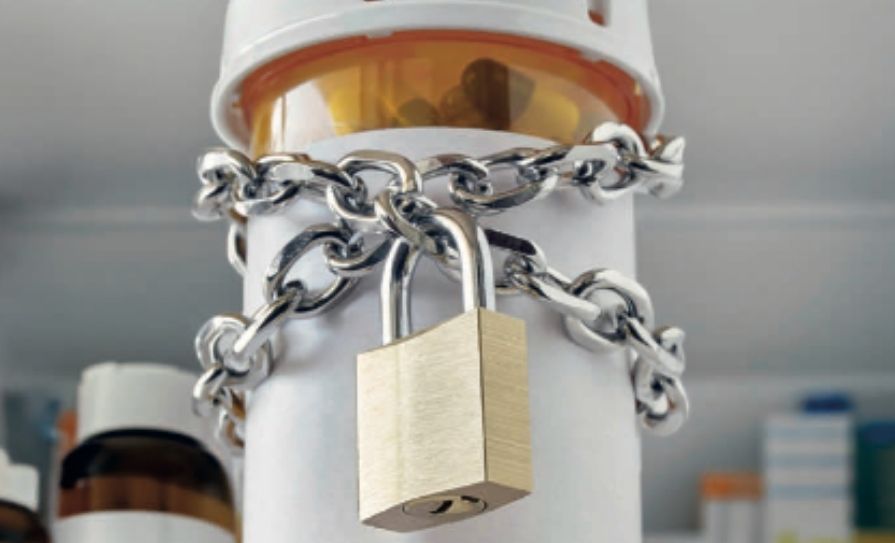The Irish Cancer Society is warning that Ireland’s two-tier health system is failing public cancer patients, and they aren’t getting the same potentially life-saving cancer treatments as those being treated in private hospitals. Private patients have swift access to EMA approved anti-cancer drugs, but public patents must wait on average two years to find out whether they will gain access to the same treatment.
According to Dr Michael McCarthy, Consultant Medical Oncologist at University Hospital Galway, around 30-to-40 per cent of new ground-breaking European Medicines Agency-approved cancer drugs available in private hospitals are not available to public patients in Ireland right now. For a cancer drug to be available to all patients, it must be approved by the HSE and made available through Ireland’s drug reimbursement scheme, a lengthy process which on average takes two years.
Cancer patients today do not have two years to wait. The Irish Cancer Society said it is urging the next Government to fully fund the National Cancer Strategy on a multi-annual basis and improve access to new, ground-breaking treatments.
Dr McCarthy says that in his speciality (head and neck, and gynaecological cancers) there are now six cancer treatments that he cannot prescribe to his public patients, which are available to private patients.
Speaking recently Dr McCarthy said: “Increasingly, the first thing I ask a cancer patient is, ‘do you have health insurance?’ When I see a new patient, or an old patient whose cancer has progressed, until now my job has always been to identify the best possible treatment option for them and then to organise that treatment. However, now, my main concern is which cancer treatments I can possibly access for them.
“I was driving to Mayo yesterday, listening to the radio. It seems there are many worthy causes seeking public funding and getting political promises with the election coming up. I have not heard of any politicians expressing an interest in addressing the two-tiered cancer drug access issue. Every day I see patients who are being left behind, patients who cannot access potentially life-saving treatments, simply because they don’t have medical insurance.
“The disparity in treatments available is worsening, and as far as I can see, the public-private access divide will continue to widen as things stand. It is troubling, numbing, to see some patients get access to the latest standard-of-care treatments, while for others, all I can offer them is the second-best treatment available. It is a new departure in Irish healthcare that public patients cannot access cancer therapies that are available in private hospitals. Second-best cancer treatments today are typically treatment options that are now 20 years or more old. But that is the reality for one-in-two patients who don’t have medical insurance,” he continued.
“The gap is widening on what the European Medicines Agency considers an acceptable treatment option, and what I am allowed to prescribe in public hospitals. It is up to the pharmaceutical companies to apply for reimbursement, and many don’t, as well as that some drugs progress through the system and are not approved for reimbursement at all. Public patients will never have access to those drugs. Public cancer patients are really being left behind.”
In February 2023, the Department of Health issued a review of the drug reimbursement process in Ireland. Recommendations included increased staffing to improve the efficiency of the reimbursement process, a publicly available tracker with indicative timelines to increase the transparency of the process, and to develop service level agreements between the different groups involved in the process.
The Department of Health established an internal Implementation Group and is working on these recommendations. But the Irish Cancer Society warns that more must be done both nationally and at a European level to accelerate equal access to cancer drugs for patients in Ireland.
Irish Cancer Society CEO, Averil Power said: “Cancer patients can’t wait, yet across the country they are forced to wait for potentially life-saving treatments. It’s incredibly unfair that some patients are getting the latest, ground-breaking cancer treatments and others are being left behind.
“We’re urging the next government to give cancer patients the time they deserve by investing in the National Cancer Strategy and improving access to new, ground-breaking treatments. There is a two-tier health system emerging in Ireland, it shouldn’t be this way. We believe by working with industry and at a European level, the next government can deliver equitable cancer care for every person in Ireland.”







